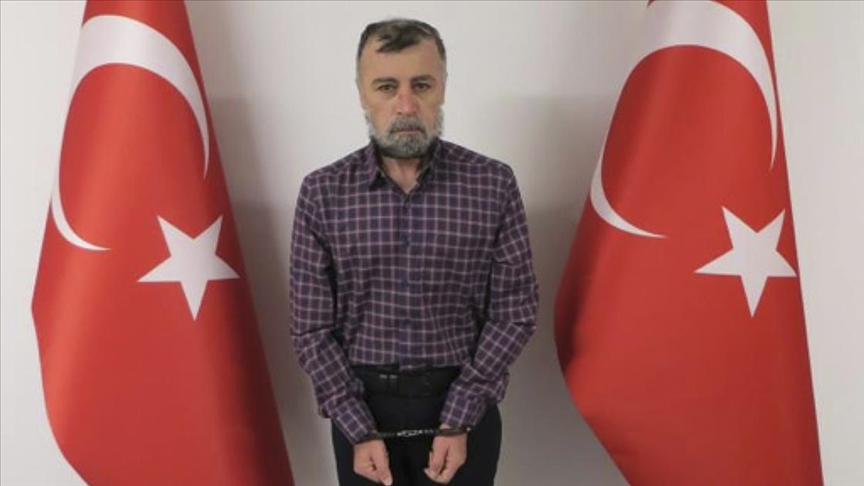Former Turkish military officer Nuri Gökhan Bozkır, serving a nearly 22-year prison sentence for his role in smuggling explosives to the Islamic State in Iraq and the Levant (ISIL), claimed during a court hearing on Thursday that he previously sold arms to Abu Mohammad al-Jolani, now the de facto president of Syria, Turkish media reported.
Bozkır, the sole defendant under arrest in the high-profile murder trial of academic Necip Hablemitoğlu, made the statement via video link to the Ankara 28th High Criminal Court on Thursday. Hablemitoğlu was assassinated outside his home in Ankara in 2002, and Bozkır is accused of aiding in the killing.
During his defense Bozkır said, “I was friends with Syrian President Ahmad al-Sharaa, also known as Jolani. Because of this friendship, I became a target. Jolani became president, but I’m paying the price for being labeled a weapons dealer.” He claimed that his actions were for the benefit of Turkey but resulted in his prosecution.
Explosives shipment case and ISIL connections
Bozkır’s imprisonment stems from a 2015 operation in which Turkish authorities intercepted a truck in Şanlıurfa carrying explosives hidden in sacks of onions. The shipment was linked to ISIL-controlled territories in Syria. According to court documents, Bozkır led the network facilitating the supply of explosives to ISIL. The materials were traced back to a mining company with significant inventory discrepancies.
Bozkır was sentenced to 21 years, nine months, while co-defendant Ahmet Yasin Güneş received a 15-year sentence for supplying arms to terrorist organizations. The court’s verdict revealed that Bozkır had misrepresented himself as a National Intelligence Organization (MİT) operative and coordinated the illegal shipments under the guise of covert operations.
Hablemitoğlu assassination trial
The assassination trial of Hablemitoğlu, which began in 2022, implicates several former military and intelligence officials. Bozkır’s defense during Thursday’s hearing included claims that video evidence and witness testimony in the case had been ignored for years. His lawyer, Ali Soykan, criticized the prosecutorial handling of new evidence, describing it as akin to “entrusting a lamb to a wolf.”
Hablemitoğlu’s lawyer, Ersan Barkın, noted that previously dismissed evidence was re-examined following a judicial order lifting a non-prosecution decision. The Ankara 9th Criminal Judgeship of Peace’s ruling prompted the prosecution to request more time for investigation. Despite defense appeals for Bozkır’s release, the court ruled to continue his detention, and the trial was adjourned until April.
Bozkır’s revelation about his ties to Jolani adds another layer of complexity to his already contentious cases.
Al-Jolani, the leader of the militant group Hay’at Tahrir al-Sham (HTS) and a former affiliate of al-Qaeda, dropped his nom de guerre and rebranded himself with his given name, Ahmad al-Sharaa. He now leads Syria following the overthrow of Bashar al-Assad on December 8. Jolani’s rise to power and his connections to Turkey’s covert arms trade raise questions about Turkey’s role in supporting extremist factions in Syria.
Bozkır claimed he was subjected to torture during his 2022 rendition from Ukraine by Turkish intelligence and alleged his actions were sanctioned by elements within the Turkish government at the time. His case also intersects with the 2014 MİT truck scandal, where trucks allegedly carrying weapons to Syrian rebels were intercepted near the Syrian border. The Turkish government maintained the shipments were humanitarian aid, but opposition leaders and whistleblowers have accused Ankara of arming jihadist groups, including the al-Nusra Front, HTS’s precursor.



